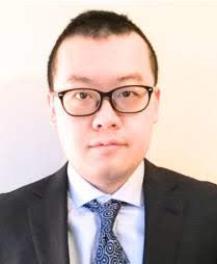College of Social Sciences Case Studies
The Transitions Survey was originally conducted in Autumn 2019 in order to gather data about the post-graduation jobs of recent PhD graduates. Participants were asked about their roles, the transition into their roles, and their advice for current PhDs to make the most of their PhD experience and prepare for post-PhD life and job searching. Those participating in the case studies included here also had the opportunity to update their responses in Summer 2020.
Below are the case studies of participants from the College of Social Sciences. The School of Education have also created a bank of case studies.
Leanne McIver, School of Interdisciplinary Studies

Employment
Research Associate with the Centre for Excellence for Children’s Care and Protection (CELCIS) at The University of Strathclyde.
Position secured before graduation.
What does your role entail?
My job involves undertaking research and evaluation and providing support to colleagues and external collaborators to incorporate research and evaluation into their programmes and services.
What do you like and dislike about your current role?
It's varied and interesting, and I get lots of learning opportunities. I work with an amazing and dedicated group of people, in what can be a sensitive and sometimes controversial area.
How did your doctorate lead to your current post?
I applied for the job before my PhD was complete because my funding was coming to an end. The topic of my PhD wasn't directly relevant, but my experience of working with children, families and schools was considered useful, I think. I had quite a lot of experience of research and evaluation before starting the PhD, in the NHS and in education, and I think that experience was an influential factor for my being offered the job.
What career progression tips would you offer to researchers if they want to follow a similar path to your own?
Work as a research assistant and/or do a research Masters before embarking on a PhD.
Transitioning to Employment
What was most helpful to you in managing your transition on from your PhD?
I was working full-time from when my PhD funding ran out and writing my thesis in the evenings and at weekends. I submitted my thesis about seven months later. I think the gradual rebalancing of my time and priorities probably helped make the transition easier, although it didn't feel that way at the time! I think the transition was also easier than it might have been because I’d more or less worked the same hours through the PhD as I did in my full time job before it, so getting into the routine was fairly straightforward. My employers were also very supportive and recognised the challenges I was facing in trying to complete my thesis while working full time.
What did you find most challenging in making the transition?
Fear of not completing at all, because of having to work full time after my funding ended.
Also, finding the balance of what was expected of me as a research associate, compared to when I was a research assistant, but having had three years of being completely in charge of my own work in the interim, was a bit challenging.
The PhD
What advice would you give in terms of making the most of the PhD experience?
As far as possible, treat it like a job and work set hours. Take weekends and holidays. Make sure you have a life separate from it - see your friends and family, allow yourself some fun. Protect your mental health. All of that will put you in the best position to do a good job of your PhD and take advantage of opportunities that arise. Use the Researcher Development Programme to identify areas where you might benefit from some additional input and pursue opportunities to get that input (whatever it might be) even if it takes you away from your main project work for a short while. In my experience the actual topic/research of my PhD has been the least relevant thing to employers, but my experience and knowing I can undertake projects at that level has been more important. Your project doesn't have to be perfect and there's more implied by having a PhD than just 'I did some research and wrote it up'.
What do you know now that you wish you had known then?
That not all PhD funding has scope for sick leave etc. (although some funders do). With hindsight I would have asked more questions about what might happen to me financially if I encountered 'unexpected life events' while being entirely dependent on my stipend as my only source of income.
Graduate of the School of Social & Political Sciences
Employment
Lecturer for the University of Glasgow, on a fixed-term contract.
6 months to secure the position after graduation.
What do you like and dislike about your current role?
I'm on a teaching-only contract, meaning I continue to develop my teaching skills and have gained access to the PGCAP. The main barrier to me fully loving my job(!) is the fact it's fixed term.
How did your doctorate lead to your current post?
I undertook an internship during my PhD (through the university's careers service) - this allowed me the chance to meet someone in the Senior Management Group. A job arose in a different college early this year, and that member of staff advised the team that I would be a good fit for the post. I applied, successfully interviewed, and started the post during the summer.
What career progression tips would you offer to researchers if they want to follow a similar path to your own?
To not be afraid of teaching only posts - the university is making an active effort to put these on a par with research active staff.
Transitioning to Employment
What was most helpful to you in managing your transition on from your PhD?
My supervisor was great at providing advice RE: job applications, reading CVs and cover letters.
What did you find most challenging in making the transition?
The job market - the precarity makes it a difficult place to be. Before securing my lecturing post, I was seriously considering leaving academia.
The PhD
What advice would you give in terms of making the most of the PhD experience?
Take advantage of the opportunities - even if you feel that they are somewhat forced, they lead you to great places. And enjoy having the freedom to fully engage in your work - it's not like that at the other end!!
What do you know now that you wish you had known then?
How difficult it can be to get through rejection after rejection after rejection...but that I'd survive it all relatively unscathed.
Honglan Yu, School of Social & Political Sciences

Employment
Lecturer in Strategy, University of Huddersfield Business School.
Position secured before graduation.
What do you like and dislike about your current role?
I like both teaching and research. As a trained researcher, I like doing research and sharing new ideas with students. Currently, I am energetic and have not found anything that I dislike.
How did your doctorate lead to your current post?
Firstly, my doctorate subject knowledge contributes as it perfectly matches with my current role. Secondly, network opportunities and publication skills developed from my doctorate training are helpful in my job interview. Finally, opportunities of graduate teaching provide good experiences of higher education.
What career progression tips would you offer to researchers if they want to follow a similar path to your own?
- Accumulate networks.
- More publications.
- More grants.
- Keep calm when applying for jobs.
- Apply for HEA Fellowship (for teaching).
- Never make any expectations on any job post.
- Try informal contacts.

